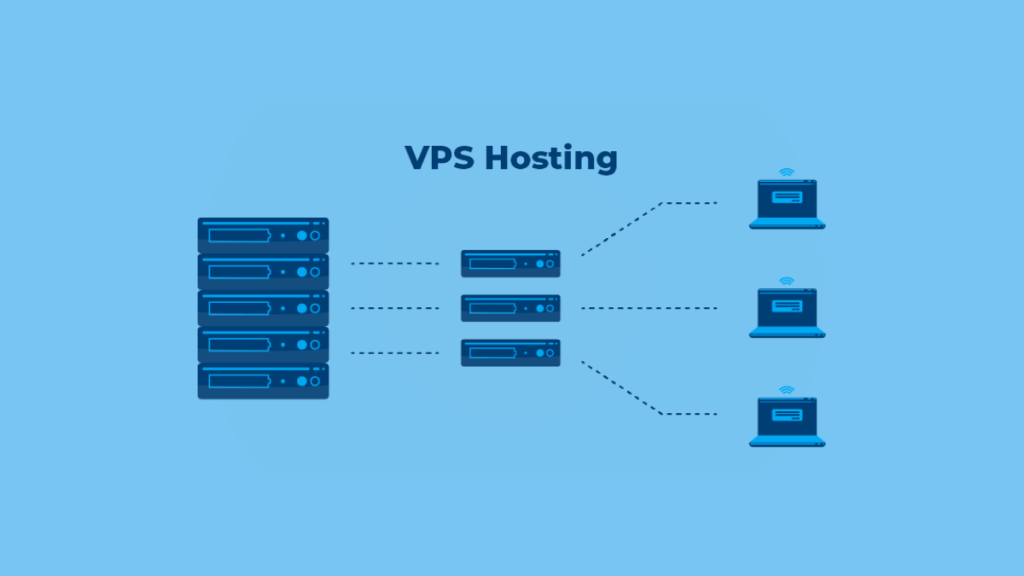Web hosting is a service that allows individuals and organizations to make their website accessible on the internet. It involves renting space on a server where your website’s files, data, and content are stored, ready to be accessed by visitors through the web.
In this article, we’ll explore the different types of web hosting available and help you decide which one is best for your needs. After reading this article, you’ll better understand the options out there and be well-equipped to choose the right hosting service for your website.
Different Types of Web Hosting
There are various types of web hosting, each catering to different needs and demands. Below are the most common types of web hosting:
Shared Hosting
Shared hosting is the most affordable and beginner-friendly option. In shared hosting, multiple websites share resources on a single server, such as storage space, processing power, and bandwidth. This type of hosting is ideal for small businesses, bloggers, and individuals with low-traffic websites.
Pros:
- Cost-effective
- Easy to set up
- User-friendly control panel
Cons:
- Limited resources and performance
- Not suitable for high-traffic websites
- May face security issues due to sharing the same server
Virtual Private Server (VPS) Hosting

VPS hosting is a step up from shared hosting. It uses virtualization technology to divide a single server into multiple private servers. Each virtual server acts as an independent dedicated resource, giving users more control and better performance. VPS hosting is suitable for growing websites with moderate traffic levels and individuals who need more control over their hosting environment.
Pros:
- Better performance than shared hosting
- More control over server resources
- Scalable according to your needs
Cons:
- More expensive than shared hosting
- Requires more technical knowledge to manage
Dedicated Server Hosting

You get an entire server solely dedicated to your website in dedicated server hosting. This means you have full control over the server, its resources, and its configurations. Dedicated server hosting offers the best performance, making it ideal for high-traffic websites and large businesses.
Pros:
- Exclusive server resources
- Highly customizable and configurable
- Excellent performance and security
Cons:
- Very expensive compared to other options
- Requires advanced technical skills to manage and maintain
Cloud Hosting

Cloud hosting is a modern hosting solution that utilizes multiple servers working together as a virtual network. Instead of having your website hosted on a single server, it’s distributed across multiple servers, improving performance, reliability, and scalability. Cloud hosting is suitable for websites that need to handle sudden bursts in traffic or require rapid scaling.
Pros:
- High performance and reliability
- Easily scalable according to your needs
- Pay-as-you-go pricing model
Cons:
- Can be more expensive than traditional hosting options
- Requires technical expertise to manage effectively
Managed Hosting

Managed hosting is a comprehensive hosting solution where the hosting provider takes care of your server’s maintenance, technical support, and security. It can be applied to shared, VPS, dedicated, or cloud hosting services. Managed hosting is ideal for businesses and individuals who don’t have much technical expertise or time to manage their server.
Pros:
- Expert support from the hosting provider
- Enhanced security measures and updates
- Less time spent on server management
Cons:
- More expensive than unmanaged hosting options
- Less control over server settings and configurations
Colocation Hosting

Colocation hosting involves physically housing your own server in the data center of a hosting provider. The hosting provider takes care of power, cooling, and internet connectivity, while you maintain and manage your own server. This type of hosting is ideal for businesses with large IT infrastructures who want to retain control over their servers but offload some maintenance responsibilities.
Pros:
- Full control over server hardware and configuration
- Improved energy efficiency and cooling systems
- High reliability due to data center redundancy
Cons:
- Expensive initial investment in server hardware
- Requires technical expertise to maintain servers
- Physical access to servers may be limited
Reseller Hosting

Reseller hosting enables individuals or businesses to purchase hosting services and resell them to their customers under their brand name. Reseller hosting typically involves a shared, VPS, or dedicated server with added tools to manage and sell hosting packages. This type of hosting is suitable for web designers, developers or individuals who want to start a web hosting business.
Pros:
- Create your own hosting packages and pricing
- Establish your own brand name
- Access to additional management tools and features
Cons:
- Depends on the reliability of the hosting provider
- Limited control over server resources and performance
- Must handle customer support for your clients
Choosing the Right Web Hosting for Your Needs
When deciding on the right web hosting service for your website, consider the following factors:
- Website requirements: What is the purpose of your website? Determine your specific needs, such as storage space, bandwidth, database capabilities, and email accounts.
- Performance and uptime: A reliable web hosting provider should guarantee a high uptime percentage (ideally, 99.9% or higher) and offer fast page load times.
- Scalability: As your website grows, your hosting needs may change. Choose a hosting provider that allows you to upgrade or easily migrate to a more suitable plan.
- Support: Ensure that your hosting provider offers excellent customer support, preferably with 24/7 availability via email, phone, or live chat.
- Budget: Determine your budget and choose a hosting service that meets your requirements at an affordable price.
FAQ
How much should I expect to pay for web hosting?
Web hosting costs vary depending on the type of hosting and the specific features you need. Shared hosting typically costs between $3 and $15 per month, while VPS, dedicated server, and cloud hosting can cost anywhere from $20 to hundreds of dollars per month. Keep in mind that managed hosting and additional services like SSL certificates or backup solutions may also add to the costs.
Can I switch hosting providers easily?
It’s possible to switch hosting providers without losing your website data. Most hosting providers offer tools and support to help you migrate your website to their servers with minimal downtime.
What is the difference between Linux and Windows hosting?
Linux and Windows are operating systems used on web hosting servers. Linux is more popular, as it is compatible with many scripting languages like PHP and is often more affordable. Windows hosting is necessary if your website relies on ASP.NET, MSSQL, or other Microsoft-based technologies.
Do I need a domain name with my hosting plan?
Yes, a domain name is necessary for visitors to access your website. Many hosting providers offer a free domain name for the first year as part of their hosting packages, or you can purchase one separately through a domain registrar.
https://stackdiary.com/types-of-web-hosting/




